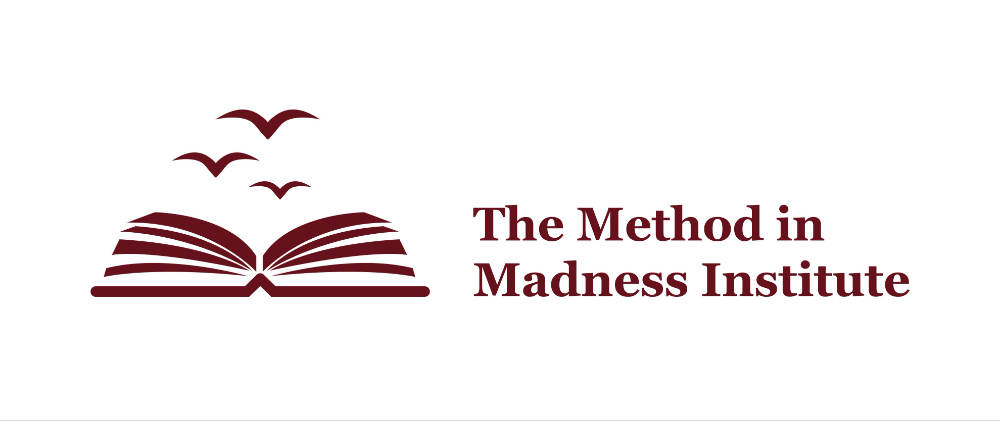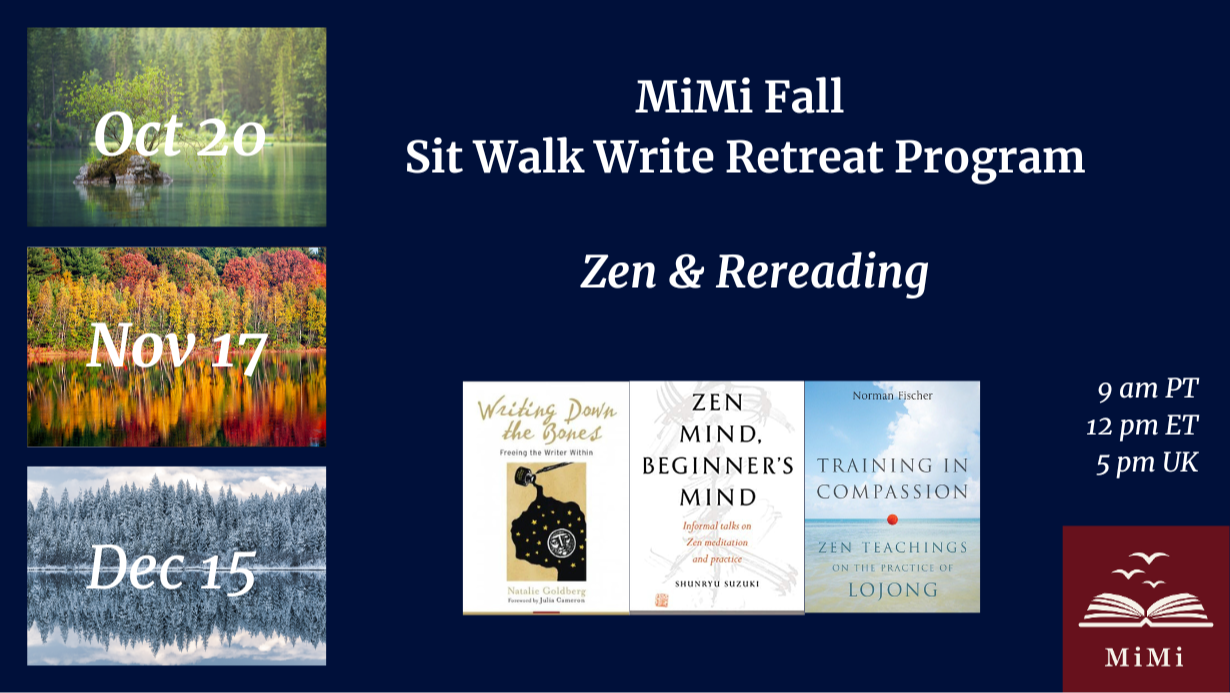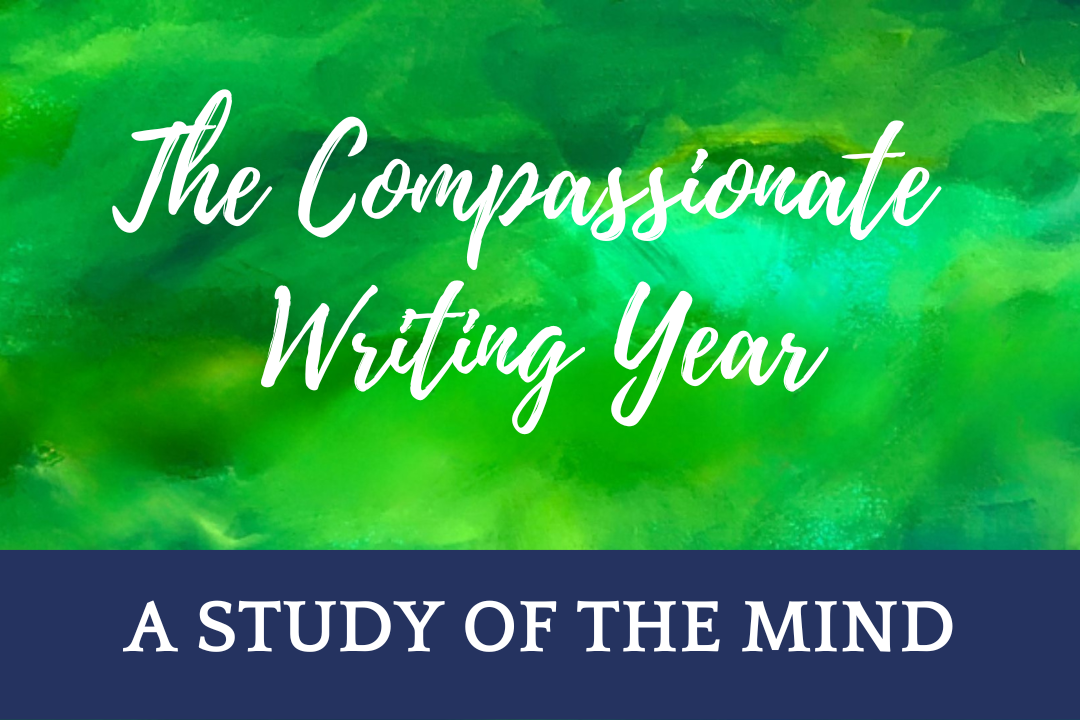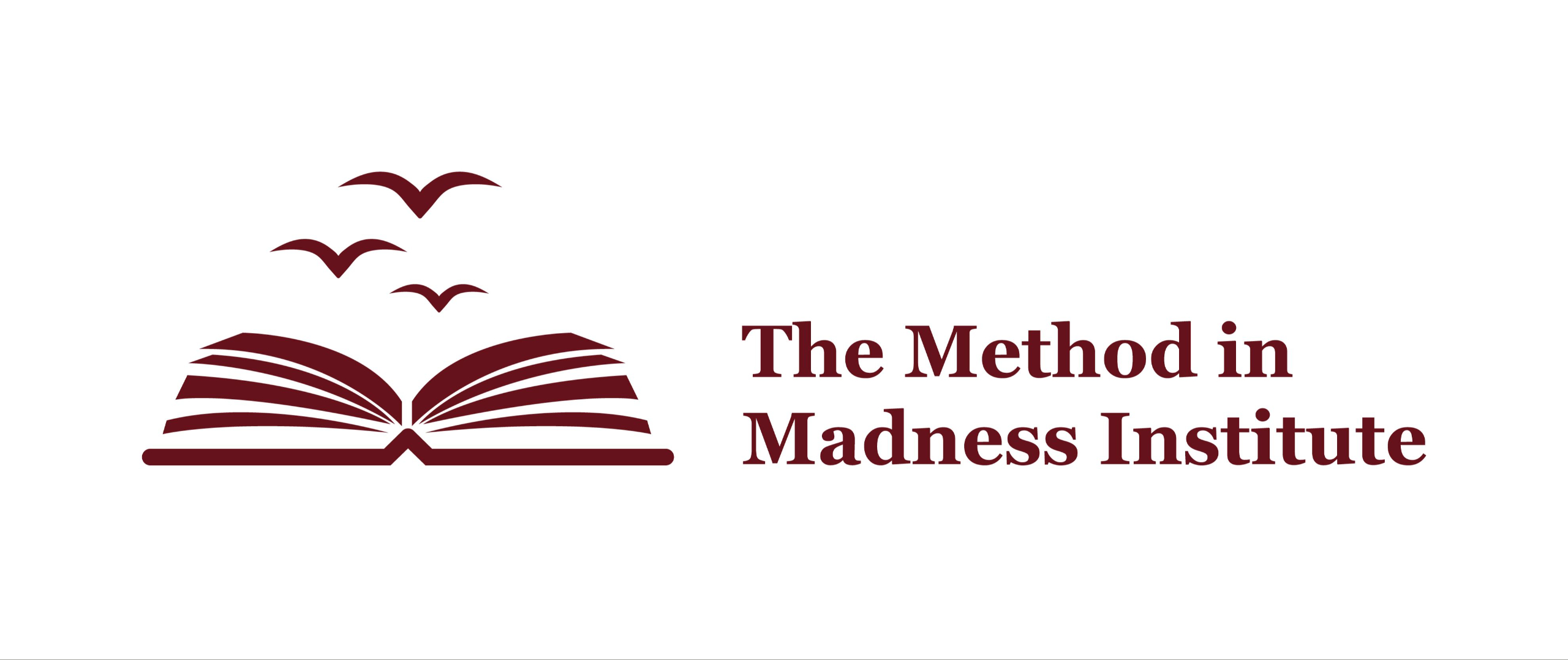The Method in Madness Institute
Writing, Literature, and Meditation
A Study of the Mind
STAY CONNECTED

What do Shakespeare, Zen, and writing have in common?
- a magnificent way to study the mind
- an invitation to confront the madness both outside and inside ourselves with an open heart
- profound yet concrete tools showing that there IS a method inside the madness and how to fully embrace it
People are only charming through their madness. This is the hard thing to understand. The real charm of people is the side where they lose their pedals a little, it's the side where they don't know very well where they are anymore. It doesn't mean they're falling apart; they're people who don't fall apart. But, if you don’t grab the little root or grain of craziness in someone, you can’t love them. We're all a little bit insane and, I fear, or I'm glad, that the point of lunacy is the very source of their charm.
Gilles Deleuze
The Method in Madness Institute
The Method in Madness Institute (MiMi) offers online courses, workshops, and retreats that combine three different ways in which both the East and the West have been studying the mind for thousands of years:
- writing
- can be a deeply meaningful experience
- but without a solid knowledge of how the writing mind works, it can also cause a lot of suffering
- the classics in literature
- consist of some of the most innovative writing and detailed psychological studies of the human mind
- but without the appropriate method, they can be very difficult to read
- mindfulness
- allows us to become more awake, suffer less, and live life to the fullest
- but without a study of the philosophy behind it, practicing meditation can feel overwhelming if not entirely impossible
MiMi approaches these three "studies of the mind" via a unique tool: writing practice AS a Zen practice.

Writing Practice as a Zen Practice
Four decades ago, Zen teacher Katagiri Roshi told a young writer, Natalie Goldberg, that her writing practice itself was an authentic Zen practice. She explains the technique in her groundbreaking book Writing Down the Bones.
MiMi Sit Walk Write retreats and courses unfold the key Zen concepts in Goldberg's book in such a way that it becomes possible to use them as a tool to study the writer's (and meditator's) mind through writing.
Why would writers need to study their minds? First of all, because the mind IS a writer's most important instrument. Secondly, so much suffering related to writing is caused by having a "wrong view" of how the mind works and of who we truly are. As modern science now shows, this is where Zen and its profoundly compassionate perspective have much to offer.


Reading the Classics in World Literature
MiMi Classics in World Literature workshops and retreats go beyond bringing people together to share the joy of reading. They address the main reasons why readers struggle with the classics by showing how to:
(1) not approach them through the lens of relatability and/or as if they should represent a pre-existing reality, but instead to read them in the slow and non-judgmental way needed to experience the radically new "affects and percepts" (Gilles Deleuze) that they have invented.
(2) deal with what they trigger in our hearts and minds (including difficult memories), so that we can stay concentrated on the work itself.
By combining a specific close-reading method with mindful awareness techniques, MiMi events not only (re)kindle love for the classics, they also help students become familiar with the reading mind. In this way, ANYONE can learn to appreciate and deeply benefit from the greatest literature.
Mindfulness - Philosophy and Method
Scientific studies have shown the benefits of mindfulness meditation. And yet, maintaining a daily practice isn't that easy. One of the main reasons is that the West tends to explore mindfulness in a one-sided way, studying the practice of meditation only.
In the East, however, mindfulness requires what is called two wings of a bird: the study of the philosophy (the view or wisdom wing, prajna in Sanskrit), as well as the application of that view to our experiences as they arise (the method or practice wing, upaya).
This is why Japanese Zen teacher Suzuki Roshi defines mindfulness as "right thinking." In this case, "right" is used in the ancient Greek sense of "orthoos," namely the most direct and fastest path to reach a goal. And what is that goal? Nothing less than real, lasting happiness, obtained through seeing the method inside the madness...
By putting the philosophy back into the practice, MiMi programs make a consistent, longterm meditation commitment doable for all.

For whom?
... and for whom not
The Method in Madness Institute's programs are for anyone passionate about writing, reading, and/or meditating (not necessarily in that order).
Its three pillars (writing practice as a Zen practice, how to read the classics in world literature, and the philosophy and practice/method of mindfulness) offer mutually reinforcing ways to deepen your writing, reading, and/or meditation.
You can also focus on only one pillar, since most of our courses and workshops are highly beneficial even when taken as a "stand-alone."
However, especially if you are an aspiring or published author, we encourage you to integrate all three pillars, because this is how you will lay the foundation that any writer needs to be at the top of their game.
All too often, today, writing gets reduced to "generating material" and then attending creative writing classes to learn the techniques supposedly needed to structure that material into a compelling story (fiction or non-fiction).
None of the greatest writers ever proceeded in this way. What is missing is the very essence: immersing yourself into the classics until you have the specific reading experience that they provide seeped into your bones.
Without this specific experience, it is difficult to install the "inner needle" - as George Saunders calls it - allowing you to recognize when your writing truly sings or how your reader can have the profound "spiritual" experience that so many classics offer, without trying to convince the reader of the truth of a "message" you may otherwise be tempted to convey.
That being said, whether you have the desire to write books/articles/... or not, using writing as "an authentic Zen practice," as Goldberg called it, can be tremendously helpful to better understand how to read the classics and/or take your meditation practice to a deeper level.
This is why in the end, the three pillars are useful even if initially you only feel drawn to one of them, because together, they have the power to take your meditation, reading, and/or writing practice to a whole new level.
Once you see the "method in the madness," you can throw yourself fully into it all, without waiting for the madness to go away.

Upcoming Events
MiMi Fall 2024 Retreat Program
Registration for the Fall Writing Practice Retreats is now closed.
To receive an invitation for the MiMi Winter Retreat program, all you need to do is sign up for the MiMi newsletter (see below)!
Fall 2024 Sit Walk Write Program
Zen & Rereading Writing Practice
Sundays
October 20, November 17, December 15
Three half-day writing retreats combining meditation, writing practice, and the study of three authors (Natalie Goldberg, Suzuki Roshi, Norman Fischer) whose texts show how to turn the rereading of "writing practice as a Zen practice" notebooks into a Zen practice too, so that rereading becomes a more meaningful and inspiring experience.
For INFO & REGISTRATION click HERE
Past Events
For an overview of our past events or to watch the replays of previous retreats, click HERE

"Method in Madness" Two-Day Opening Retreat
Saturday February 17 & Sunday February 18 2024
A Two-Day Sit Walk Write Retreat focused on how to read the classics, applying these guidelines while watching Shakespeare's play "Hamlet" (Kenneth Branagh version), and analyzing part of the text of Scene 2 of Act 2, which contains the expression "method in madness."
Courses
The Compassionate Writing Year
A comprehensive, yearlong writing practice course deepening the understanding and practice of the three MiMi pillars. Registration is closed. Join the waitlist HERE.

The Zen Talks
A weekly close reading of Suzuki Roshi's Zen classic ZEN MIND, BEGINNER'S MIND - Informal talks on Zen meditation and practice. Registration is closed.
Blog
The MiMi blog will address "hot topics" related to writing, literature, and meditation.
Don't hesitate to send in your questions by hitting the "contact" button above
and come back soon to discover the first article!
Support Us
Writing, literature, and meditation should be available to all, regardless of background or financial circumstances.
We're deeply grateful for any donation to the MiMi Scholarship Fund (one-time or recurring)
helping those who may need it to benefit from our educational services and community too.
Stay Connected
Subscribe to our newsletter to stay informed of upcoming courses, writing retreats, literature workshops, and discounts.
When you hit the “send” button, you will receive a confirmation email. Please remember to click on the link to validate your MiMi newsletter subscription!





